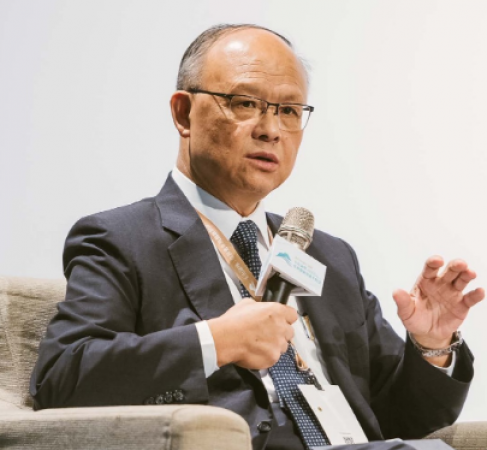
Washington: The chief trade representative for Taiwan claims that despite tensions with China, Taiwan is still the best location for this production and other U.S. trade, business, and investment. He claims that Taiwan's semiconductor manufacturers will increase production there as much as they can afford to do so.
In this week's visit to Washington, where he is leading a Taiwanese trade delegation and meeting with U.S. trade officials, John Chen-Chung Deng spoke to The Associated Press.
Deng's visit coincides with increased efforts to fortify the militaries and economies of the United States and Taiwan against any threat posed by rival China. President Joe Biden and Congress are taking steps to increase semiconductor production on American soil as part of this in case a conflict disrupts exports.
Also Read: Bank Staff to get 5-day work week: FinMin may soon release notification
Taiwan produces more than 90% of the more sophisticated semiconductors used in the world's electronics, including electric cars, advanced weapons, phones, and semiconductors.
Pentagon officials have also been travelling throughout the Indo-Pacific to encourage allies there to strengthen military defences and deterrence. As part of a bipartisan congressional effort to identify concrete ways to strengthen deterrence, a House committee wargamed a hypothetical attack by China on Taiwan and American positions last month.
Americans, according to Deng, ought to view these initiatives as a means of preventing Chinese President Xi Jinping from feeling self-assured enough to invade Taiwan, which China claims as its own.
Deng advised against using rhetoric or exaggeration that misrepresents the actual situation or stirs up unnecessary fear.
The U.S. business community in Taiwan, he claimed, has assured him that it is still growing and hiring. He cited Taiwan's skilled workforce and support sectors as advantages for semiconductor manufacturers, as well as for Google, Amazon, and other American companies operating there.
Over the past two years, tensions between the U.S. and China have reached dramatic highs as Xi's government has emphasised China's burgeoning economic, diplomatic, and military power. China has emphasised its extensive territorial claims in the area.
For its part, China accuses the United States of interfering in its internal affairs and pursuing a containment strategy to stop China's rise.
Also Read: S.Korea, Indonesia to seek stronger economic ties, Details Inside
After a civil war, Taiwan and China split in 1949 and do not currently have any formal ties. Trade and investment worth billions of dollars connect them. The Chinese Communist Party routinely flies bombers and fighters close to Taiwan in an effort to enforce its position that the island must join the mainland, by force if necessary.
Republicans, Democrats, and the Biden administration all support fortifying American and Taiwanese positions in the area to thwart any Chinese invasion of the island.
That increase in overall U.S. support for Taiwan has also caused Washington to give Taiwan's decades-old requests for the U.S. to change its tax and trade policies towards the island new attention. According to Taiwanese leaders, current U.S. policies make it difficult for Taiwanese businesses and employees to operate in the country and could help Taiwan improve trade relations with allies.
In 1979, the United States moved its diplomatic missions from Taipei to Beijing. Taiwanese workers in the United States are required to pay taxes in both Taiwan and the United States in the absence of formal relations and the type of tax treaty that the United States has signed with friendly nations that it recognises. For many Taiwanese, this makes travelling to the already expensive U.S. prohibitively expensive.
It was a problem that the US needed to address, according to Treasury Secretary Janet Yellen in March. Senior members of Congress have also urged the United States to negotiate a tax deal with Taiwan.
The Biden administration is also pledging tens of billions of dollars to help build American chip foundries and lessen the country's reliance on suppliers in Taiwan and other parts of Asia, which Washington views as a security vulnerability.
Taiwan Semiconductor Manufacturing Corp., a $40 billion investment, is building a chip plant in Arizona and plans to build a second one in response to demand from the United States.
Given the double tax burden the operation will bear, Deng expressed his hope for a resolution to the tax dispute before the first Taiwanese plant in Arizona begins operations.
This is a serious issue once they start producing, the trade official said.
In a nod to the free-trade agreements the United States has negotiated with South Korea and other allies, Taiwanese officials also hope to conclude an initial trade agreement with Washington in the upcoming weeks.
In the past, Washington has refrained from signing a free-trade agreement with Taiwan due to concerns about upsetting China. Deng argued that the anticipated U.S. trade agreement would increase Taiwan's confidence and inspire other allies to expand trade with Taiwan.
Also Read: IMF predicts that this year's Middle East growth will be slowed by inflation
According to Deng, this would assist Taiwan in reducing its economic reliance on trade with China, which currently accounts for between 35% and 40% of Taiwan's exports.
He claimed Taiwan also understood the strategic value of the Biden administration's efforts to deter other nations from exporting semiconductors to China in order to deprive China's security forces of the cutting-edge chips they require.
About 25% of Taiwan's GDP is derived from integrated circuits alone. However, Taiwan "realises there's no sense in sending chips to them, to build up missiles aiming at us," Deng said, in reference to China's portion of that.